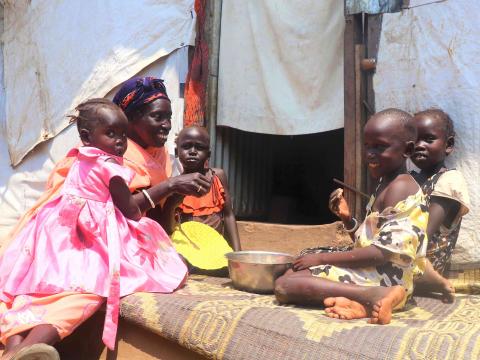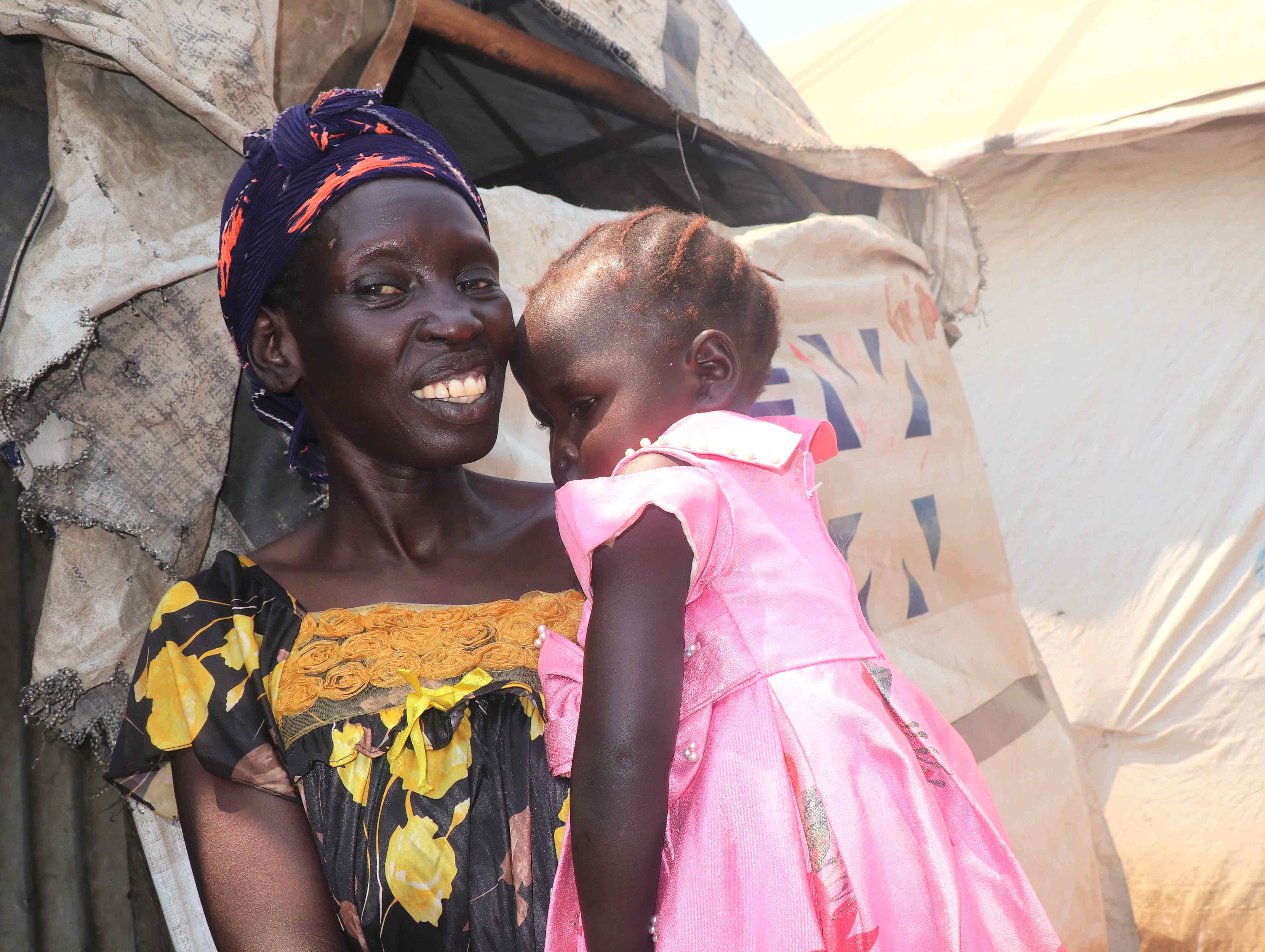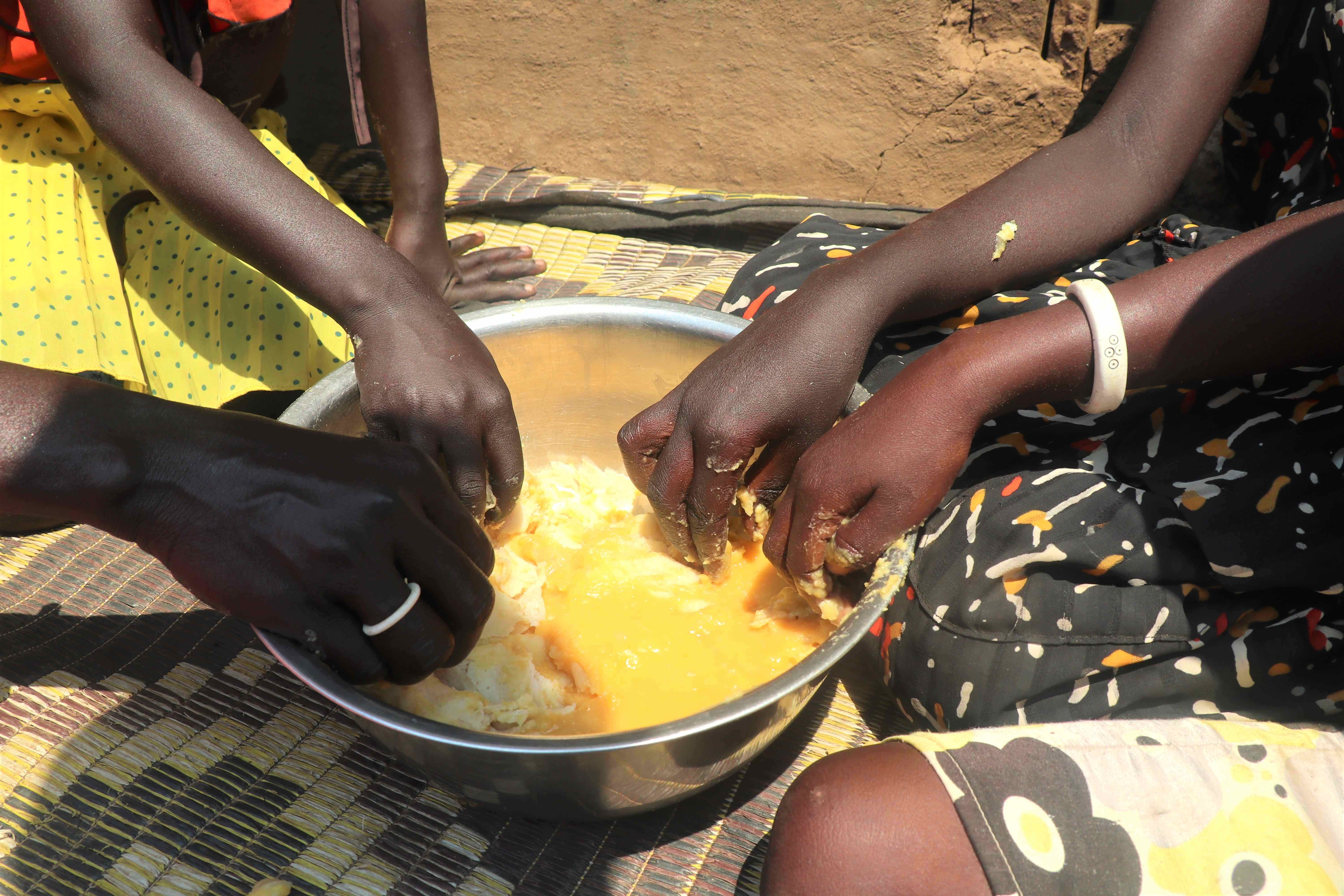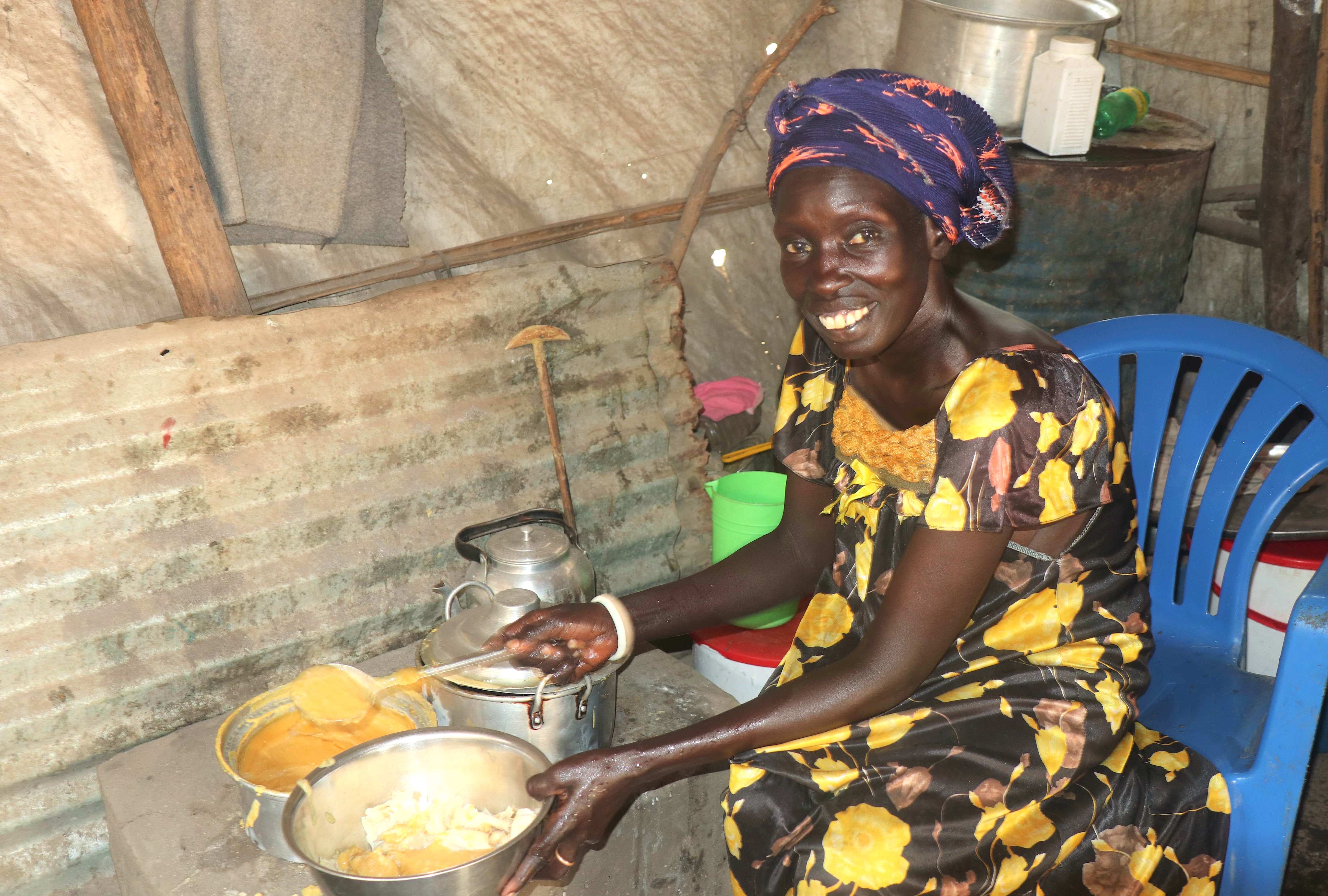Over 32,000 IDPs depend on WFP and World Vision’s food assistance in the Juba PoC

“As long as my children have food to eat every day, I have no worries,” says Gonyjack Elizabeth Benjamin, a 32-year-old mother of six. She adds, “I live at the UN Protection of Civilians (PoC) Site 1 in Juba since 2013 when the conflict broke out. Life was then so difficult including finding food for my children and settling down with a touch environment.”
Elizabeth said life became much better when World Vision started distributing food for the internally-displaced in the POC. She adds, “I receive cereals, pulses, and other supplies for my children. We are also provided cash monthly for milling. My children and I can have at least two meals per day with porridge for breakfast.”

She expressed happiness that her children are healthy and dreams of going home to resume life in her village. She is aware that many of the displaced complain that the food assistance is not enough through the month, but she said planning and cooking properly can help the supply last.
The World Food Programme (WFP) supports World Vision’s implementation of the Food Assistance Project supporting 32,117 people in the PoC. World Vision and WFP assists 89,783 internally-displaced affected by conflict and natural calamities in Central Equatoria State and provides life-saving interventions.

Emmanuel Ondoga, Acting Project Manager says, “The needs remain high among the displaced as they are largely confined inside the camps. Their movement is limited unlike when they are in their villages where they have farms and livestock. Many of them have no means of livelihood or source of income.”
The needs remain high among the displaced as they are largely confined inside the camps. Their movement is limited unlike when they are in their villages where they have farms and livestock.
Elizabeth adds, “During this time of the COVID-19 pandemic when everyone is terrified because of the congestion, the World Vision staff give us hope through the door-to-door awareness sessions as well as prevention reminders during the food distribution activities.”
Ondoga adds, “Hunger is still a big threat in the country, and the most vulnerable are women and children. World Vision continues many of its life saving activities in the POC because of our commitment to serve the people of South Sudan, and ensure that children’s urgent needs are addressed.”

“Our hope is for the peacemakers to work hard to achieve peace and improve the lives of millions in the country”, he concludes. Over 966,000 people received food assistance through World Vision’s food security and livelihood programs in South Sudan in 2020.
Watch video: Mothers continue to fight COVID-19 with courage and resilience
Story by Adil Ben, Monitoring & Evaluation Officer I Photos by Scovia Faida Charles Duku, Communications Coordinator